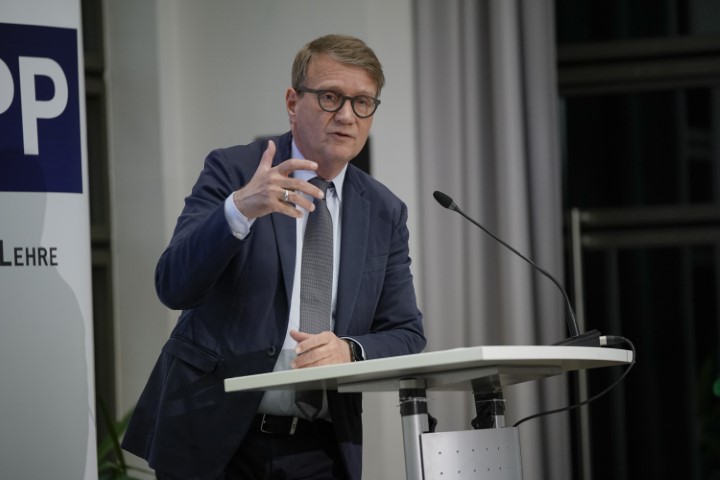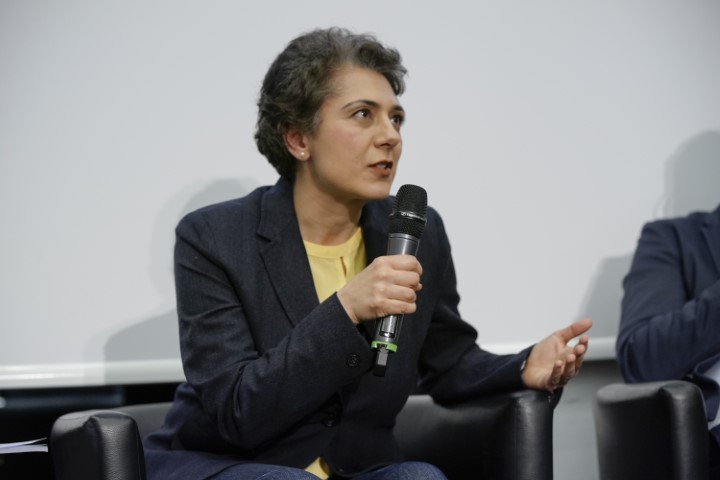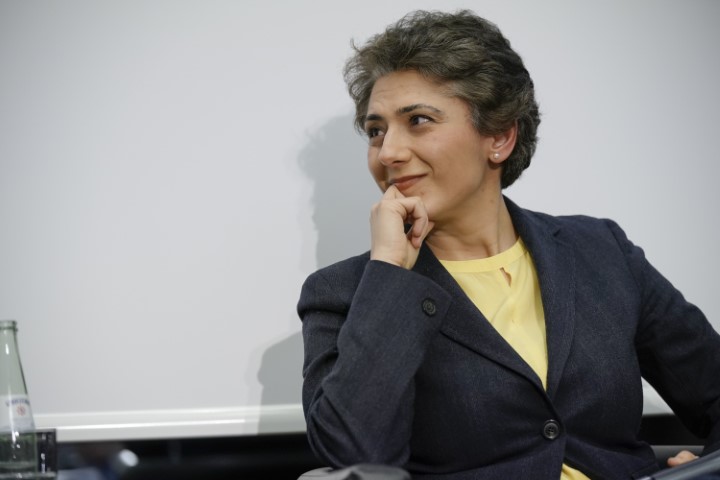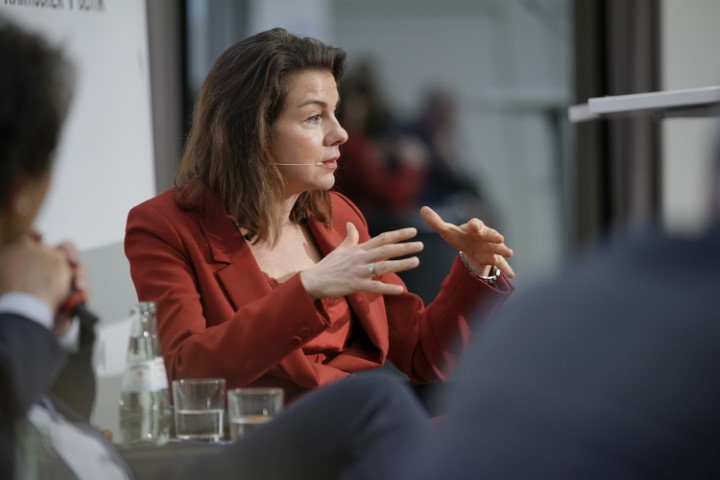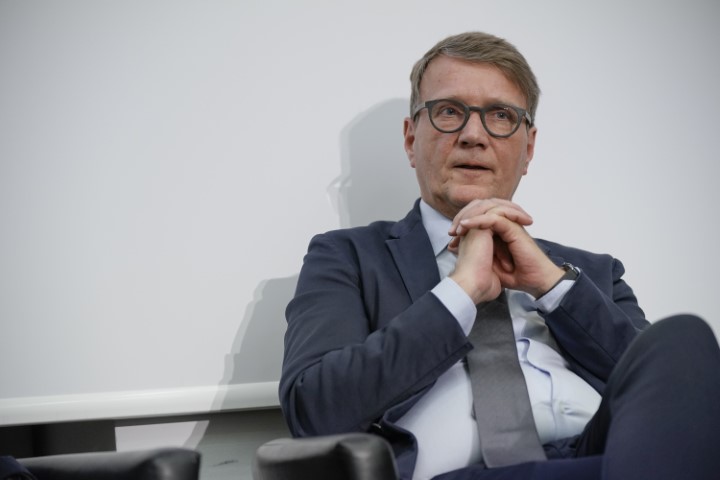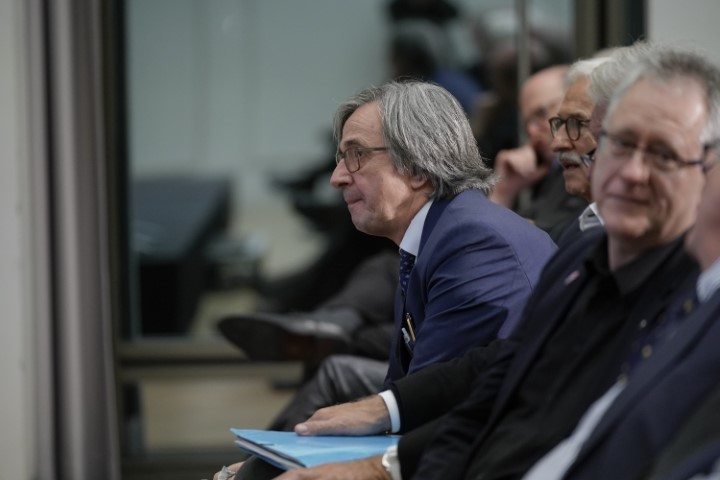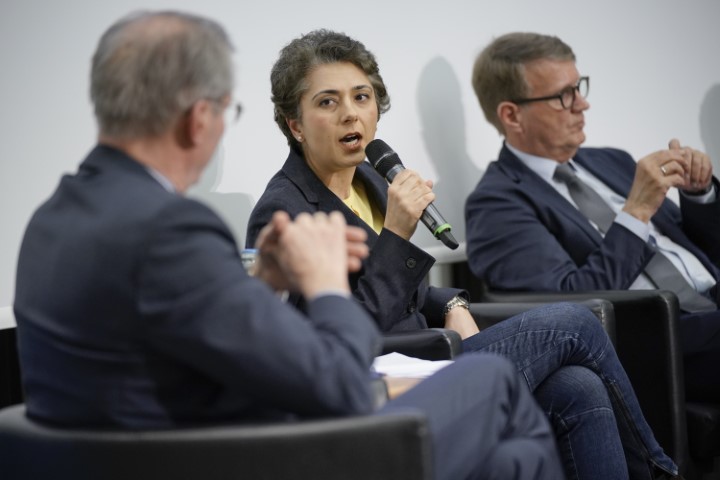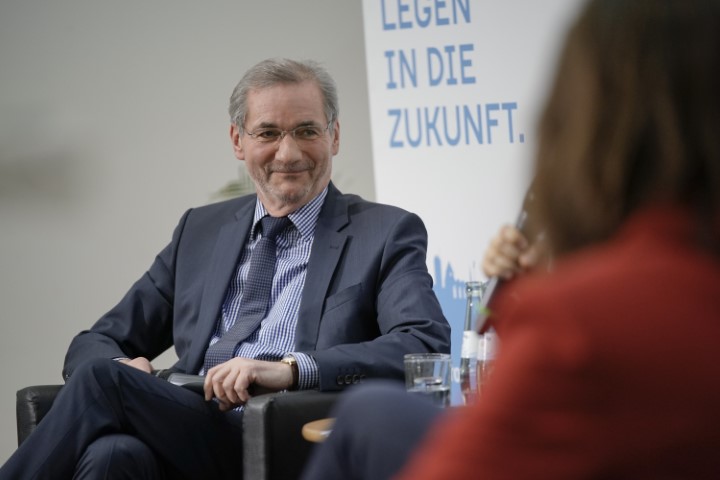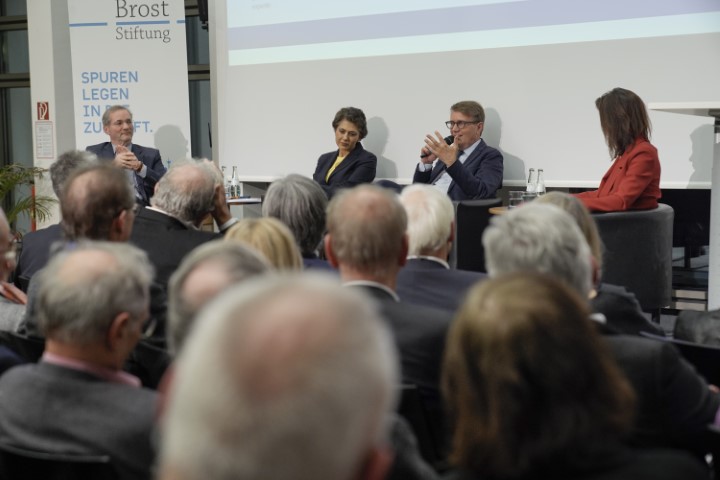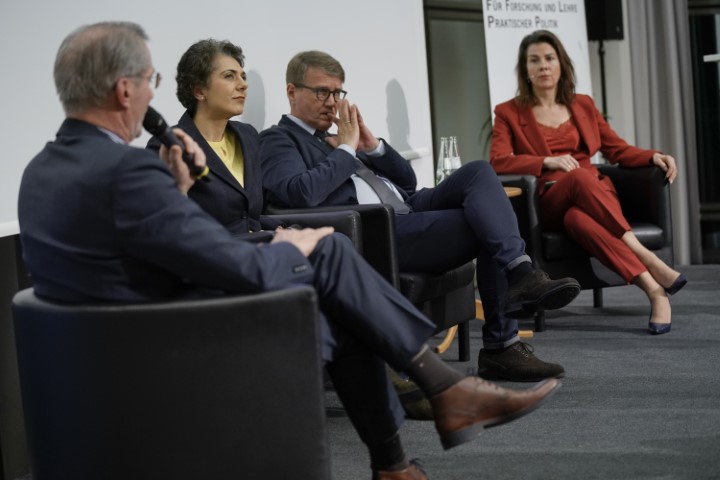Can, should or may the German government talk to a man whose country is practically at war with a NATO partner? According to Turkish authorities, 33 soldiers were killed in a Russian air raid in the northern Syrian province of Idlib this week. Russian President Vladimir Putin has also ordered the dispatch of two more warships in the Mediterranean.
In this unpredictable current context, the Bonn Academy for Research and Teaching of Practical Politics (BAPP) asked the question “Russia – Is it time for a New Dialogue?” during a panel discussion on the evening of the 27th February, with obvious controversies between journalist and Russia expert Golineh Atai on one side, and Matthias Platzeck (Chairman of the German-Russian Forum) and Ronald Pofalla (Chairman of the Petersburg Dialogue) on the other side.
There was still a broad consensus on the “whether” a dialogue should take place when BAPP President Professor Bodo Hombach warned: “Diplomacy is not a fair-weather event at a champagne reception, it is disaster control. It was created as a key to advance politics.”
In the debate, moderated by Anja Bröker, former foreign correspondent of the ARD in Moscow, the proposals were diametrically opposed when it comes to “how” a dialogue should take place. Pofalla spoke in favour of continuing close cooperation. He said that Germany and Russia were dependent on each other, particularly in regards to the North Stream 2 Baltic Sea pipeline: “Without Russian gas as a transitional energy source we will not be able to manage the energy transition for which school students here take to the streets on Fridays”.
Golineh Atai sharply criticised Germany’s dealings with its neighbours to the east as a result of events in the recent past. “It always takes two sides for a dialogue,” said Atai. “But since 2014, the other side has become increasingly closed and speaks a language of refusal.”
Since the annexation of the Ukrainian Crimea to the Russian Federation in 2014, which is today still regarded by Europe as an annexation against international law, a bloody war has been raging in Eastern Ukraine between Russian and Ukrainian armed forces. At the end of 2018, the UN estimated the number of casualties at around 30,000. In the Syrian war Putin now supports the potentate Assad above all with his strong air force. In addition, the Russian side is completely ignorant of international law: in 2019 a young Georgian was murdered in the middle of Berlin, and according to numerous indications the alleged murderer is said to have acted on behalf of the Russian state. Chancellor Angela Merkel nevertheless travelled to Moscow in January for talks with Putin, accompanied by Foreign Minister Heiko Maas. Does Germany show too much weakness and too little rigour towards Russia? For Russia expert Atai there is no doubt: She considers a relationship on an equal footing with the Russian government to be increasingly difficult, as the latter has begun to define itself as “the opponent” vis-à-vis the West. Atai: “I am of course in favour of cooperation. But cooperation for cooperation’s sake is unfortunately not always Russia’s priority.”
Matthias Platzeck vehemently disagrees: “The fact that someone has a different point of view should be a stronger call for dialogue.” The politician warns not to confront Russia with a raised forefinger, he advises patience instead of isolation from Russia. Platzeck: “We should look ahead with foresight and not demand that the Russians have to be like us tomorrow.”
Atai, on the other hand, considered the question of how to classify repressive measures against the Russian civilian population, of which there had been over 50 during Putin’s third term of office alone. Moreover, according to Atai, the president’s popularity ratings had reached a historic low of 35 percentage points.
Here the debate has come full circle towards consensus. Pofalla, too, sees the Putin era as the twilight of the gods, and the time after is already casting shadows: “I have had the opportunity to meet some impressive personalities in the Russian parliament who give me hope.” Platzeck adds: “A more liberal faction has formed behind Putin. It has recognised that social and environmental issues and the new demands of Russia’s younger generation must be taken into account if national society is to be won over.”
Pofalla’s clear conclusion: “One can certainly hope that after Putin there will be someone who wants to change the country for the better!”
The event took place in cooperation with United Europe and the Brost Foundation on 27th February at the Bonner Akademie für Forschung und Lehre praktischer Politik (BAPP) in Bonn.





